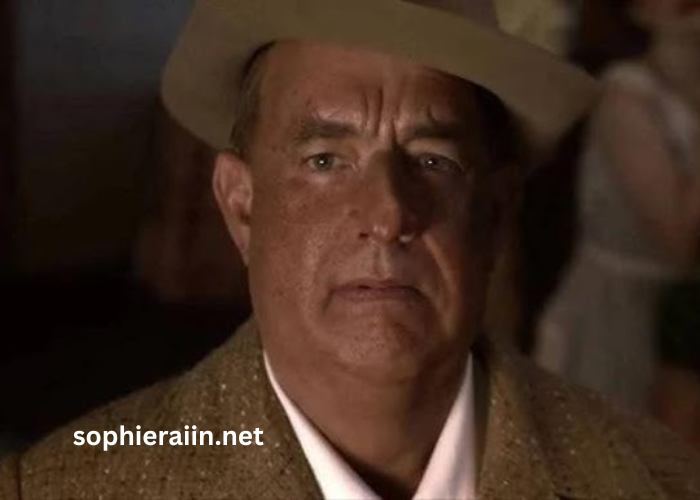Colonel Tom Parker, born Andreas Cornelis van Kuijk, was the mastermind behind the rise of Elvis Presley, one of the most iconic figures in music history. Often described as a shrewd, enigmatic, and controversial manager, Parker’s role in shaping Elvis’s career cannot be overstated. From humble beginnings to becoming the “Colonel” who orchestrated the meteoric success of the “King of Rock and Roll,” Parker’s influence on the music industry and Elvis’s legacy is profound. This article takes a deep dive into the life of Colonel Tom Parker, exploring how he transformed Elvis Presley from a local performer into a global phenomenon.
Early Life of Colonel Tom Parker
Colonel Tom Parker was born on June 26, 1909, in Breda, Netherlands. He immigrated to the United States as a young man, where he adopted the name “Tom Parker” and created a new identity for himself. His early years in America were marked by odd jobs and stints in carnivals, where he developed a keen understanding of showmanship and promotion.
These experiences would later become crucial as he ventured into the world of music management. Despite his mysterious background and questionable immigration status, Parker’s determination to succeed in America set the stage for his future career as a music manager.
The Transition to Music Management
Before managing Elvis Presley, Parker had already established himself as a successful promoter and manager in the entertainment industry. He worked with country music stars like Eddy Arnold and Hank Snow, learning the intricacies of the music business. Parker’s ability to promote his artists and secure lucrative deals made him a sought-after manager.
His understanding of the entertainment industry’s workings, combined with his relentless drive, positioned him as a formidable force in the world of music management. It was during this period that Parker honed the skills that would later propel Elvis Presley to stardom.
Discovering Elvis Presley
Colonel Tom Parker first became aware of Elvis Presley in 1955, when he was a relatively unknown performer in the South. Parker was immediately struck by Elvis’s unique style, charisma, and potential to appeal to a broad audience.
At the time, Elvis was being managed by Bob Neal, but Parker saw an opportunity to take Elvis’s career to new heights. He eventually persuaded Elvis and his family to let him take over management duties, promising to turn the young singer into a national star. This marked the beginning of one of the most famous partnerships in music history.
The Strategy Behind Elvis’s Success
One of Colonel Tom Parker’s greatest strengths was his ability to create a strategy that maximized Elvis Presley’s appeal across different demographics. Parker recognized that Elvis’s blend of country, gospel, and rhythm and blues had the potential to transcend racial and cultural barriers.
He carefully crafted Elvis’s public image, balancing his rebellious persona with a wholesome, all-American appeal. Parker also insisted on controlling every aspect of Elvis’s career, from his music to his film roles, ensuring that nothing was left to chance. This meticulous approach was key to building Elvis’s enduring legacy.
Negotiating the RCA Deal
In 1955, Colonel Tom Parker negotiated one of the most significant deals in music history, securing a contract with RCA Victor for Elvis Presley. The deal, worth $35,000 (a substantial sum at the time), allowed Elvis to record with a major label and gain national exposure.
Parker’s negotiation skills ensured that Elvis received a lucrative advance and a favorable royalty rate. The RCA deal was a turning point in Elvis’s career, as it provided the resources and platform needed to launch him into superstardom. Parker’s ability to secure this deal highlighted his business acumen and foresight.
The Impact of Television Appearances
Television played a crucial role in catapulting Elvis Presley to fame, and Colonel Tom Parker was quick to recognize its potential. Parker arranged for Elvis to appear on popular TV shows like The Ed Sullivan Show, where his electrifying performances captivated millions of viewers.
These appearances helped to solidify Elvis’s image as a dynamic and rebellious performer, attracting a massive fanbase. Parker’s strategic use of television not only boosted Elvis’s popularity but also changed the landscape of the music industry, proving that TV could be a powerful tool for promoting artists.
The Rise of Elvis Mania
Under Colonel Tom Parker’s management, Elvis Presley quickly became a cultural phenomenon. “Elvis Mania” swept the nation, with fans flocking to his concerts, buying his records, and imitating his style. Parker capitalized on this frenzy by licensing Elvis’s image for merchandise, ranging from posters to lunchboxes.
This created a multi-million dollar empire that extended far beyond music. Parker’s ability to monetize every aspect of Elvis’s brand was groundbreaking at the time and set a precedent for modern celebrity management. The rise of Elvis Mania was a testament to Parker’s marketing genius.
Expanding into Hollywood
Colonel Tom Parker saw Hollywood as the next frontier for Elvis Presley and wasted no time in securing film deals. Parker believed that movies would not only generate substantial income but also extend Elvis’s appeal to a broader audience.
Beginning with Love Me Tender (1956), Elvis starred in a series of films that were commercial successes, though often critically panned. Parker’s strategy was to prioritize quantity over quality, ensuring that Elvis was constantly in the public eye. While some argue that this approach hindered Elvis’s potential as an actor, there is no doubt that it contributed significantly to his overall fame.
The 1968 Comeback Special
By the mid-1960s, Elvis Presley’s popularity had waned, and he was seen more as a movie star than a musician. Recognizing the need to revitalize Elvis’s career, Colonel Tom Parker orchestrated the famous 1968 Comeback Special. The television special, which featured Elvis performing live for the first time in years, was a resounding success.
It reminded the world of Elvis’s unparalleled talent as a performer and reignited his music career. The Comeback Special marked a turning point in Elvis’s career, reaffirming his status as the King of Rock and Roll and proving Parker’s strategic brilliance once again.
Managing Elvis’s Concert Tours
After the success of the 1968 Comeback Special, Colonel Tom Parker shifted focus to live performances, organizing a series of concert tours that brought Elvis Presley back to his adoring fans. Parker’s expertise in promotion and logistics ensured that these tours were meticulously planned and highly profitable.
He arranged for Elvis to perform in Las Vegas, where he became a fixture at the International Hotel (later the Las Vegas Hilton). These performances solidified Elvis’s reputation as one of the greatest live entertainers of all time. Parker’s management of Elvis’s concert tours demonstrated his ability to adapt to changing circumstances and keep the Elvis brand thriving.
The Controversies Surrounding Parker’s Management
While Colonel Tom Parker was undoubtedly instrumental in Elvis Presley’s success, his management style has been the subject of much controversy. Critics have accused Parker of being overly controlling and prioritizing profits over Elvis’s artistic growth.
For example, Parker’s insistence on taking a 50% commission on Elvis’s earnings was unusually high by industry standards and raised questions about his ethics. Additionally, Parker’s reluctance to let Elvis tour internationally has been attributed to his undocumented status in the U.S., a decision that arguably limited Elvis’s global reach. These controversies continue to spark debate about Parker’s true impact on Elvis’s career.
The Decline of Elvis Presley’s Career
In the 1970s, Elvis Presley’s career began to decline, marked by health issues, personal struggles, and a lack of artistic direction. Colonel Tom Parker’s management during this period has been criticized for failing to address these challenges and for continuing to push Elvis into demanding concert schedules.
Some argue that Parker’s focus on financial gain contributed to Elvis’s physical and mental decline. Despite these criticisms, Parker remained fiercely loyal to Elvis until his death in 1977. The decline of Elvis’s career raises questions about the long-term effects of Parker’s management style and whether different decisions could have altered the course of history.
The Legacy of Colonel Tom Parker
Colonel Tom Parker’s legacy is complex and multifaceted. On one hand, he is credited with creating the blueprint for modern music management and turning Elvis Presley into a global icon. His innovative marketing strategies, keen business sense, and relentless drive were key factors in Elvis’s success.
On the other hand, Parker’s controversial tactics and personal motivations have led some to view him as a figure who exploited Elvis for his own gain. Regardless of how he is perceived, there is no denying that Parker played a pivotal role in shaping the music industry and the legend of Elvis Presley.
Lessons from Parker’s Management Style
The story of Colonel Tom Parker offers valuable lessons for modern-day managers and artists. Parker’s ability to recognize talent, create a compelling brand, and navigate the complexities of the entertainment industry are skills that remain relevant today.
However, his approach also serves as a cautionary tale about the dangers of excessive control and the importance of balancing financial success with artistic integrity. For those looking to make their mark in the music industry, Parker’s management style provides both inspiration and a reminder of the ethical responsibilities that come with managing talent.
Conclusion
Colonel Tom Parker was a man of contradictions—brilliant yet controversial, loyal yet controlling. His management of Elvis Presley was instrumental in creating one of the most enduring legacies in music history. From negotiating groundbreaking deals to orchestrating iconic performances, Parker’s influence on Elvis’s career was profound.
However, the controversies surrounding his management raise important questions about the nature of success and the price that comes with it. As we look back on the life and career of Colonel Tom Parker, it is clear that his impact on the music industry will continue to be felt for generations to come. His story is a testament to the power of vision, ambition, and the complex dynamics of the entertainment world.



